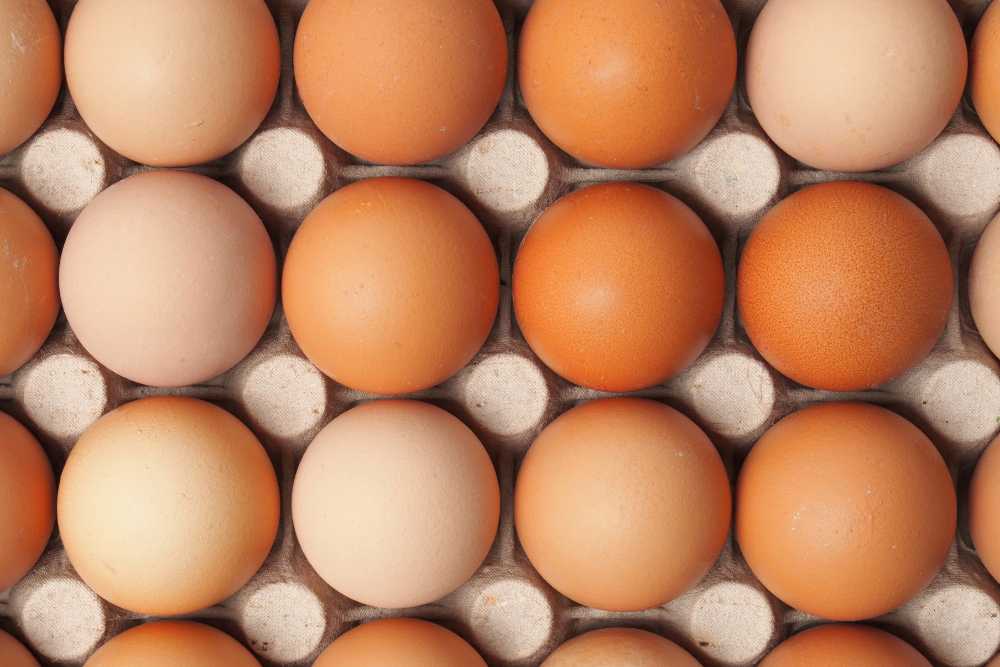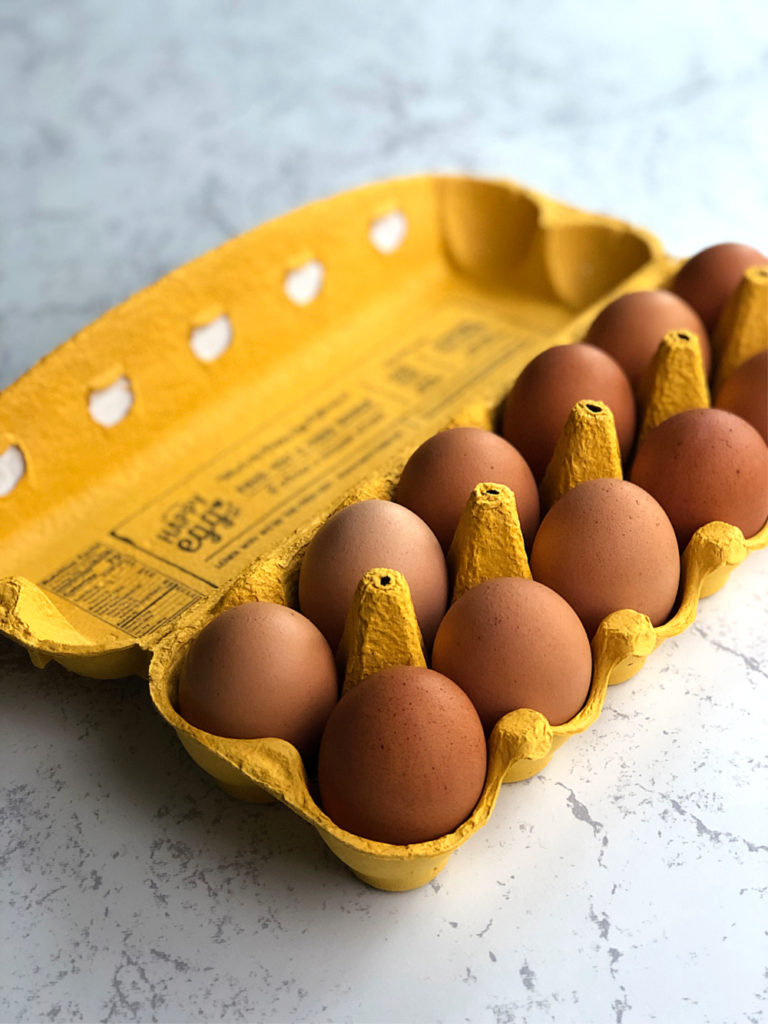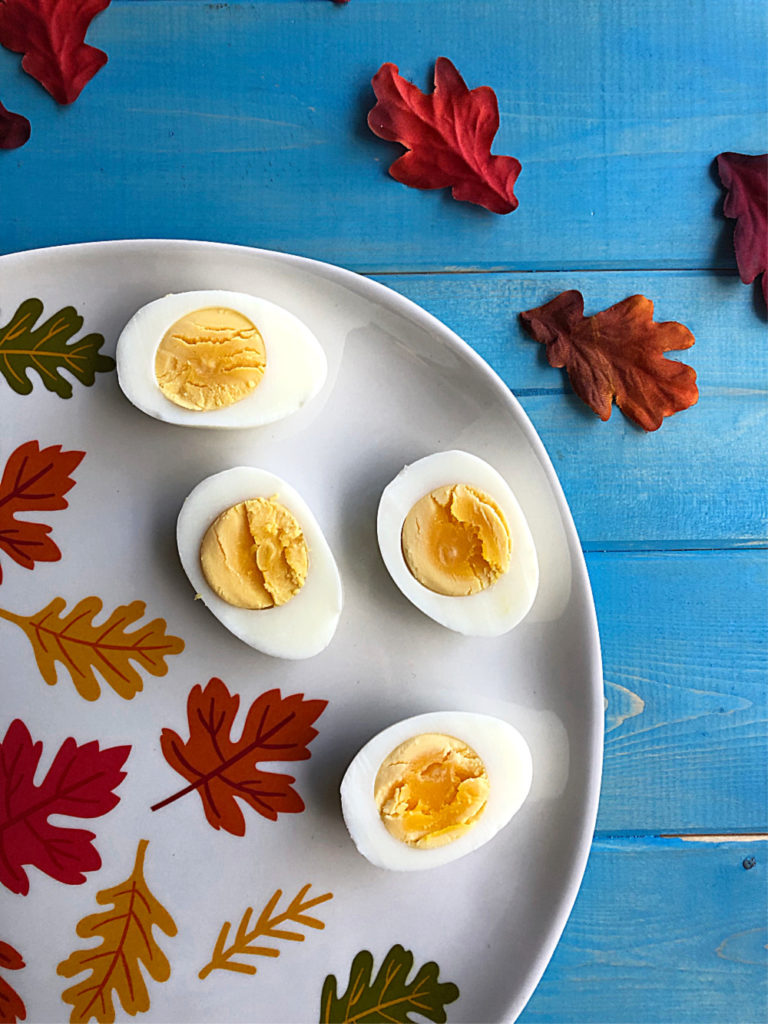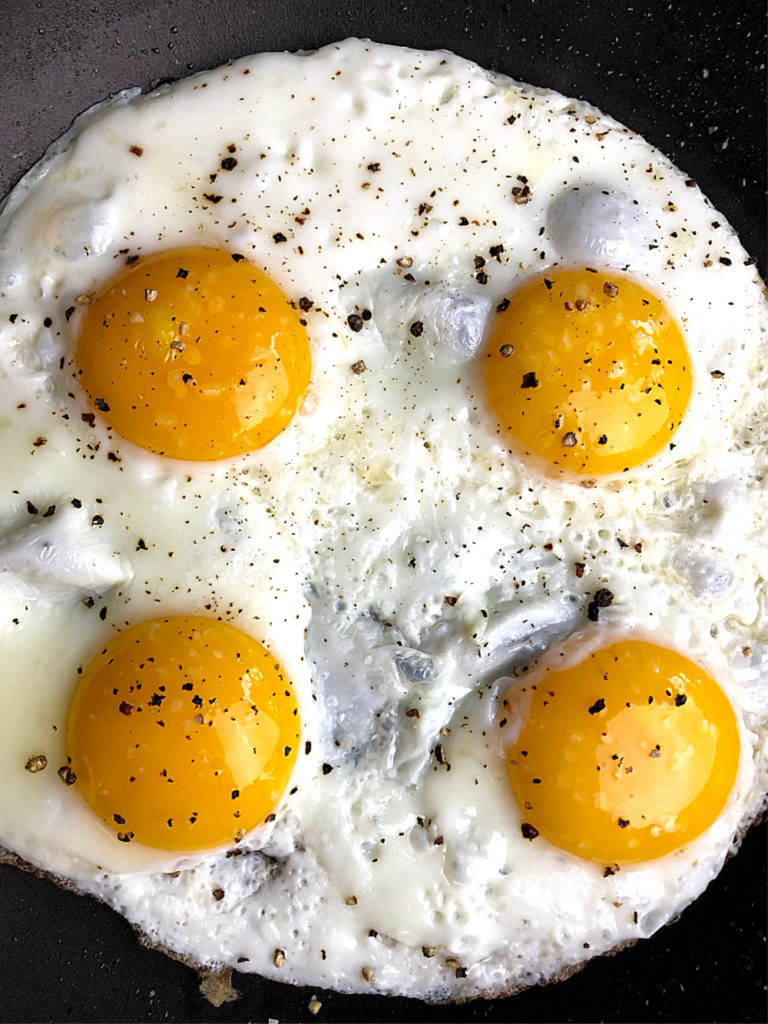
You might be new to the gluten-free diet and wondering, Are eggs gluten free?
In this article, I will discuss eggs in detail and help you feel good about this egg-ceptional food.
Are Eggs Gluten Free?
Yes, eggs are 100 percent gluten free and safe to consume on a strict gluten-free diet regardless if you have celiac disease or non-celiac gluten sensitivity.
This means you can hard-boil, soft-boil, fry or scramble your eggs.
When eating eggs outside of the home or at a restaurant, be sure to ask for your eggs to be prepared in a clean pan and with a clean spatula so they are not exposed to any gluten cross contamination.
Make sure no filler foods are added to your egg omelette, for example. IHOP adds pancake batter to its omelettes, thereby rendering its omelettes no longer gluten free.
How Much Protein is in an Egg?
Since you don’t have to worry about gluten, and you can freely enjoy eggs, you might be wondering more about the nutritional qualities of an egg.
Eggs contain all essential nine amino acids, making it one of the least expensive complete proteins money can buy. Amino acids are the building blocks of life and serve as energy for every cell in the body.
One egg contains six grams of protein. The average man needs about 56 grams of protein, and the average woman needs about 46 grams of protein per day. (Use the USDA calculator to calculate how much protein you need based on your weight, height, age and activity level.)
Not only does the protein found in eggs supply energy to your entire body, but also it boosts satiety and helps build muscle and prevent muscle loss.

Enjoy the Yolks
For a long time, the egg yolk was villainized because it carried all the fat and cholesterol. We used to think fat and cholesterol were bad for you, but we have to come to learn that they are indeed essential to a healthy diet.
In fact, egg yolks contain good fats – the omega 3 fatty acids you hear about all the time. Omega 3s are important for cardiovascular health and building a strong immune system.

If you’re worried about your cholesterol, there is no need to shy away from egg yolks. The truth is you need cholesterol in your diet as it’s fundamental to cellular function. The cholesterol you find in the yolk contains heart-healthy ingredients that actually improve your health.
The egg yolk contains some of the most important and bioavailable nutrients found inside an egg. For example, about half of the egg’s protein and all of the egg’s nutrients, including vitamins A, D, E and K, are, you guessed it, all found in the yolk.
It’s interesting to note that eggs are one of the very few foods that contain Vitamin D, another essential nutrient that promotes the absorption of calcium, bone growth and overall whole body health. (The other foods that contain Vitamin D are the flesh of a fatty fish, beef liver and some cheeses.)
In that beautiful yellow yolk, you’ll also find choline, an essential nutrient for human healthy. Choline is known for a slew of benefits including its ability to help reduce the risk of neural tube defects, improve liver function and help to maintain a healthy metabolism. Choline consumption by pregnant women has been shown to aid in development of a child’s memory function.
Yellow vs Orange Yolks
Did you know that the color of the yolk depends on the hen’s diet? I didn’t know this until I researched this article.

Apparently, hens that eat wheat, barley and/or cornmeal yield lighter-colored yolks, while free-range hens that forage on the land and eat plant pigments have vibrant colored yolks, just like the beautiful eggs produced by Happy Egg Co. hens (as seen in the above picture).
What’s in the Whites?
Egg whites contain a little more than half of an egg’s total protein. The white part is very low in calories and contains almost no cholesterol or fat.
Remember what I said before. The fat inside an egg is fat you need to achieve whole body health. Eat the entire egg. It’s perfectly packaged with tons of nutrients that work together to fuel your body right.
Eggs are one of the most bioavailable foods on the planet – this means you can easily digest, absorb and utilize an egg’s nutrients – but you must eat the whole thing, yolk and all.
Pasture-Raised vs. Conventionally-Raised Eggs
I think you should make every bite count, but it’s hard to say if there are any major nutritional benefits to eating pasture-raised eggs vs. conventionally-raised eggs.
What I can say is that you can see a difference. Free-range, pasture-raised hens are soaking in the sun and exhibit natural behaviors like foraging for food. These natural behaviors are clearly visible when you see a bright orange-yellow yolk.
While the research is fledgling, there is some emerging research that suggests pasture-raised eggs have the edge over conventionally raised eggs.
A 2014 study published in Nutrition magazine found the vitamin D3 content of egg yolk was “three- to fourfold higher in the groups [hens] that were exposed to sunlight compared with the indoor group [hens].”
It makes sense to me that healthy animals produce healthier products.
I like to think of it this way: If you want to be healthy, eat foods produced by farmers who employ healthy practices and have healthy, happy animals.
Eggs are Uncomplicated
Most breakfast foods contain a long list of ingredients that you have to sort through just to figure out if there’s hidden gluten or artificial ingredients. They are also typically high in sugar.
Your average yogurt, for example, contains more sugar than a can of soda, and your breakfast cereal is loaded with refined grains and sugar. Even your morning bacon likely contains sugar, soy and other processed ingredients.
And then there’s the egg… the most uncomplicated of all the breakfast foods! It contains no sugar, no gluten and no carbs. It’s naturally Whole30, paleo and gluten-free compliant, too.
Egg Recipes
Try these egg-cellent recipes on for size:
- Easy Egg and Brussels Sprouts Breakfast Skillet: A tasty savory breakfast loaded with vegetables, fiber and protein.
- Homemade Gluten-Free Egg Noodles: I’ll show you how to make gluten-free egg noodles from scratch.
- Egg Fried Rice: A delicious side dish or meal, you’ll love my egg fried rice recipe.
- Egg & Quinoa Muffins: Protein-packed breakfast made in a muffin tin.
I agree with everything you said! Thanks for your comment Karen!
Thanks, Jenny! There is something very beautiful about knowing the eggs we choose can come from hens that are out free in the sunlight, enjoying the world as nature intended.
Plus, there’s not much better than pairing eggs with avocado! 🙂
Karen H